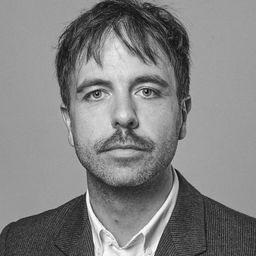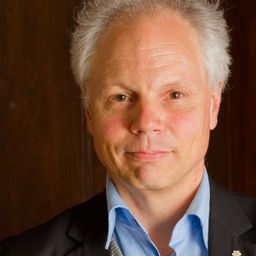
Elementy, w których Dr Areti Galani uczestniczy
niedziela 5 czerwiec, 2016
Digital installations and interventions have been seen as a promising ways to support and foster dialogue in museum exhibitions. How does this potential translate into practice and does it enable reflexive and critical approaches towards heritage-making? This session aims to explore how digital installations and interventions in the context of museum exhibitions envision the notion of the ‘dialogic museum’. It particularly aims to articulate and problematize the role of digital in...
wtorek 7 czerwiec, 2016
What is the future of the UK and what is the role of heritage in this shifting political landscape? How have debates on heritage in the UK changed since the influential critiques of Hewison and Wright in the 1980s? How can those engaged in Critical Heritage Studies in the UK negotiate the difficult relationship between academic critique and sector relevance? How do current debates in the UK relate to and differ from those in Western and non-Western contexts? This workshop will bring ...
Elementy, w których Dr Areti Galani attends
piątek 3 czerwiec, 2016
Qu’est-ce que le patrimoine change à Montréal? Qu’est-ce que Montréal change au patrimoine? Ce débat vise à mettre en discussion l'évolution et le devenir du patrimoine dans la métropole du Québec en interrogeant les motifs de l'attachement (ou de l'indifférence) de la société civile et des décideurs, mais aussi en questionnant les moyens dont ils disposent pour agir sur le patrimoine. Au-delà de la fameuse "pierre grise" et des matériaux expressifs de l'identité historique de Montré...
Welcome addresses and cocktail, followed by the Concordia Signature Event "The Garden of the Grey Nuns". As the opening ceremony and cocktail take place in the former Grey Nuns' Motherhouse, recycled into campus residence and reading rooms by Concordia University, delegates will also have the possibility to discover the video Three Grey Nuns (3 minutes, by Ron Rudin and Phil Lichti. Three Grey Nuns recount their memories of communal life in the Grey Nun’s Motherhouse. Built...
Working with archival documents and the current-day morphology of the Grey Nuns' site, Dr Cynthia Hammond, Dr Shauna Janssen, in collaboration with Dr Jill Didur, will curate a series of installations and performances that speak directly to the rich heritage of a specific urban landscape: the gardens of the Grey Nuns' Motherhouse, now part of the Concordia University downtown campus. Visitors will have the opportunity to explore the lost working gardens of the Grey Nuns. As with other such...
sobota 4 czerwiec, 2016
What if we changed our views on heritage? And if heritage has already changed? While, on the global scene, states maintain their leading role in the mobilization of social and territorial histories, on the local scale, regions, neighbourhoods and parishes have changed. Citizens and communities too: they latch on to heritage to express an unprecedented range of belongings that no law seems to be able to take measures to contain, often to the discontent of...
Much is being made of the perceived breakdown of the nation-state, which was historically configured as a “container” of heritage formations, adopting and perusing local traditions where possible but oppressing them where deemed unsuitable. Migration is seen as eroding the rigid boundaries of this configuration, potentially liberating identities and heritages in the process. This session addresses the relationship between critical heritage and redefinitions of self, other, community and place...
This festive event will offer delegates a taste of one of the iconic dishes of Montreal, the smoked meat sandwich, imported by Jewish immigration from Eastern Europe in the early 20th century. In particular, the tasting will allow a discovery of the products of the renowned international institution Schwartz's, the Hebrew Delicatessen for which Montrealers and tourists alike are willing to wait in long line-ups. During the tasting, “Chez Schwartz,” a documentary produced by Garry B...
niedziela 5 czerwiec, 2016
"What does heritage change?" is a multifaceted question to which the answer(s) are in primary respects related to real-life negotiations among different groups of citizens, cultures, races, ethnic groups, sexual identities, and social classes about received, official and/or widely accepted or accomodated intangible attributes, cultural traditions, historic monuments, buildings, and other transmitted or revived historical legacies. Heritage designated by and for whom, for what motivations, an...
poniedziałek 6 czerwiec, 2016
Involving communities, visitors or the public is frequently presented as one of the major tasks of museums and heritage sites in current global movements toward new collaborative paradigms (Golding and Modest 2013; Watson and Waterton 2011). Co-production is a highly current issue, and a proposed emancipatory solution to the authorized heritage discourse, which seemingly has reached a critical juncture. Scholarship has echoed calls from communities for more direct involvement in the presentat...
Around the globe the planning of large-scale memorial-museum projects concerned with violent histories are frequently marred by conflict, omission, and competitions of victimhood. This problem also extends to scholarship on genocide and memory. “Moving memory” is a collaborative multi-sited research exhibition about the Armenian and Roma genocides that proposes creative solutions to these museological and scholarly conflicts around commemoration. Our multi-sited event includes two pr...
Le patrimoine fait aujourd’hui l’objet d’attentions autant que d’agressions et de destructions. Cela peut s’expliquer par les difficultés de son identification ou de sa conservation. Cela peut plus profondément s’expliquer parce que, dès le départ, il célébre un événement ou conserve une mémoire qui peut être ou devenir une source de dissenssions et de conflits politiques. Enfin, sa reconnaissance suscite des gains économiques pour les uns mais des pertes pour les autres. Mais peut-être...
wtorek 7 czerwiec, 2016
We would like to propose a session, building on the one we ran at the 2014 CHS conference in Canberra, on how emotion and affect feature in the fields of heritage and museums studies, memory studies, public history, heritage tourism, studies of the built and urban environment, conservation, archives and any field of study that deals with the emotional impact and use of the past in the present. There is an increasing interest in how emotion is a form of judgement on things that affect ou...
What is involved in presenting the past as a physical object in public space? There is a significant literature by scholars in various disciplines that deals with the array of decisions that need to be made regarding which stories should be told, and how they should be represented. Nevertheless, once constructed, there is a tendency to see these objects as natural, as if they had to be built and could not have been constructed any other way. The Lost Stories project is designed to involve ...
What is the future of the UK and what is the role of heritage in this shifting political landscape? How have debates on heritage in the UK changed since the influential critiques of Hewison and Wright in the 1980s? How can those engaged in Critical Heritage Studies in the UK negotiate the difficult relationship between academic critique and sector relevance? How do current debates in the UK relate to and differ from those in Western and non-Western contexts? This workshop will bring ...
The closing dinner of the conference, called “Pawâ” according to a French-Canadian tradition borrowed from the Native American lexicon, will be an opportunity to discover, in the heart of the Old Port of Montreal, an original culinary creation by the caterer Agnus Dei, from the renowned Maison Cartier-Besson in Montreal, leader in its field for its boundless creativity and event expertise. The dinner, in the form of stations, will offer delegates an exploration of Quebecois culinary heritage,...









